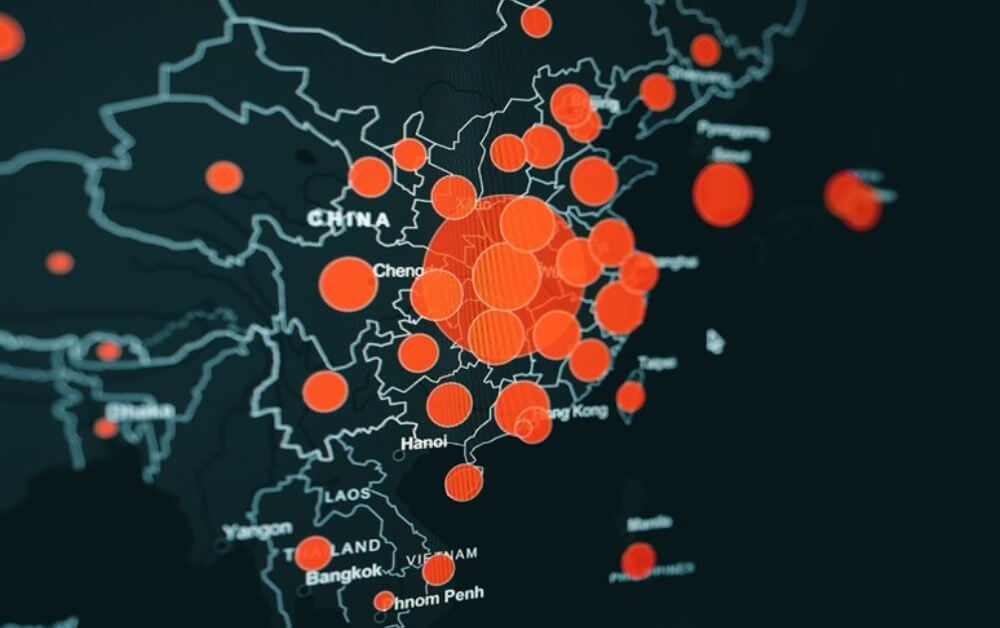Today’s insights are brought to you by my colleague and global futurist, Dean van Leeuwen.
Our team’s Grey Elephant framework is all about the forces of change that are transforming the 2020s. This framework is used to prepare for the unexpected, to think like a futurist and promote resilience when faced with change, political upheaval, climate change, social unrest and the many other forces of change affecting our world.
A Grey Elephant is a highly probable, high impact and yet ignored threat. It is a disruptive force, and through this framework the key message is clear: If we wait for a grey elephant to appear, it will be too late to prepare. So, expect the unexpected. Promote resilience. Protect the weak. Co-operate globally.
During the 2020s businesses will face the confluence of seven powerful forces colliding with a pandemic which like a hurricane will amplify their impact.
Enlightened leaders with their eyes tuned towards change are already striking out and finding new ground. They recognise that the best way to predict the future is to boldly create it and there has never been a better time to deliver value and impact. Using new strategies, leadership mindsets and business models, the leaders are leveraging the perfect storm as an opportunity to build resilience into their systems, and they have an agile and ready playbook.
In no particular order of threat or magnitude, the seven grey elephants defining this new age of humanity include:
- Ageing
- Angry Planet
- Inequality
- Big Squeezes
- Angry People
- Multipolarity
- Intelligent Assistance
Combined these seven Grey Elephants will cause a sharp transformation.
Today’s article will focus on Ageing and how you can better understand what transformations are taking place and how they might affect you. What should you be doing to be more strategically agile?
Ageing
The rapid increase in life expectancy poses intriguing questions about how individuals will utilise the additional time bestowed upon them. With the world experiencing a swift process of ageing, a significant shift is underway. Ageing is a tsunami of change, its impact will be massive and yet this is a neglected grey elephant. Very few companies and countries are facing up to the realities of ageing. The implications are vast, complex and not understood nearly well enough.
For the first time in history, the number of elderly individuals surpasses the count of young children. By 2030, older persons aged 60 and above are projected to outnumber children aged 0-9 years, with estimates reaching 1.4 billion and 1.3 billion, respectively. Moreover, this trend is expected to intensify by 2040, as the population over sixty is set to double from its present figures.
An example of this societal transformation can be seen in Japan, where sales of adult diapers have outstripped those of baby diapers. Furthermore, the number of centenarians is experiencing exponential growth, increasing by a staggering 400 percent each year.

The implications of the ageing phenomenon are far-reaching and yet often underestimated, with only a limited number of companies and countries adequately addressing its realities. Consider the economic ramifications of a dwindling workforce and consumer base comprised of younger individuals. The decline in the number of younger workers and consumers presents a fundamental challenge for businesses, raising concerns about who will purchase products and contribute to tax revenues.
Germany, for instance, is expected to witness a loss of approximately one-third of its workforce over the next decade. In this context, technology is poised to play a crucial role in augmenting the workforce as organisations struggle to find talent. Additionally, the allocation of resources toward healthcare expenses will impact disposable income, leaving individuals with limited financial flexibility.
Consequently, the traditional concept of retirement will be shattered, as individuals will need to continue working well into their seventies and eighties. Pensions, as currently understood, will become obsolete, leaving younger and older generations frustrated for distinct reasons—one grappling with shouldering the burden of funding retirement while the other faces broken pension promises.
Remarkable trends
- Fertility is below replacement levels in most countries. When fertility rates fall below the replacement level, it means that each successive generation is smaller than the previous one.
- Population growth is slowing dramatically.
- World population will peak at around 11 billion by 2100.
- The world is ageing rapidly, only Africa remains young.
- In Europe, nearly 1 in 3 people will be 60 or older by 2030.

- As life expectancy increases and fertility declines, a higher percentage of the population will consist of older individuals, which can strain social welfare systems and healthcare resources.
- A decline in fertility rates can lead to a shrinking labor force in the long term. As fewer individuals enter the working-age population, there may be a shortage of skilled workers and a reduced pool of talent for businesses and industries.
- Lower fertility rates can influence the overall structure and dynamics of society. Smaller family sizes may result in changes in family structures, with implications for intergenerational relationships, caregiving responsibilities, and the support systems available for older individuals.
Going Forward
Our research unveils the disruptive nature of the 2020s, a decade fraught with significant challenges. From the urgent need to combat accelerating climate change to the ongoing battle against various forms of inequality, these pressing issues are just two of the seven prominent grey elephants we have identified in this study. Compounded by the current hurricane-like pandemic, these converging forces create a perfect storm, intensifying and hastening the pace of change.
Fortunately, we possess an unprecedented array of technology and insights that can aid in problem identification and solution delivery. Remarkable opportunities await leaders who embrace a mindset attuned to change. What we need is the confidence to lead with courage, as the greatest risk of the 21st Century lies in our failure to think boldly enough to shape an exceptional century for all.

Grey Elephants are not new phenomena; they symbolise the world and the era in which we currently reside. During such times, businesses can find salvation through a culture of exploration, embracing bionic approaches, fostering robust ecosystems, promoting diversity and inclusion, and becoming agents of positive change. Our research demonstrates that companies that thrive amidst Grey Elephants reshape their business models to adapt and address the challenges they pose.
Addressing the challenges and opportunities associated with an ageing population is no exception and necessitates proactive measures and innovative approaches. By adopting forward-thinking strategies, societies can ensure the well-being and sustainable development of their populations, seizing the potential that lies within this demographic shift.
I’d love to chat about how our team can help you, and your team, identify the grey elephants that could have the biggest impact on your organisation or industry in the near future…
Dean van Leeuwen is the co-founder of TomorrowToday Consulting – a futurist consultancy working with leading organisations around the world. He is an expert on global trends, innovation, and strategic business transformation.
You can access Dean’s latest research on ‘Closing the Innovation Gap – The 7 strategic and cultural essentials that separate successful large-company innovator’s here or chat with us about our ‘Full blown innovation’ keynote presentation.


